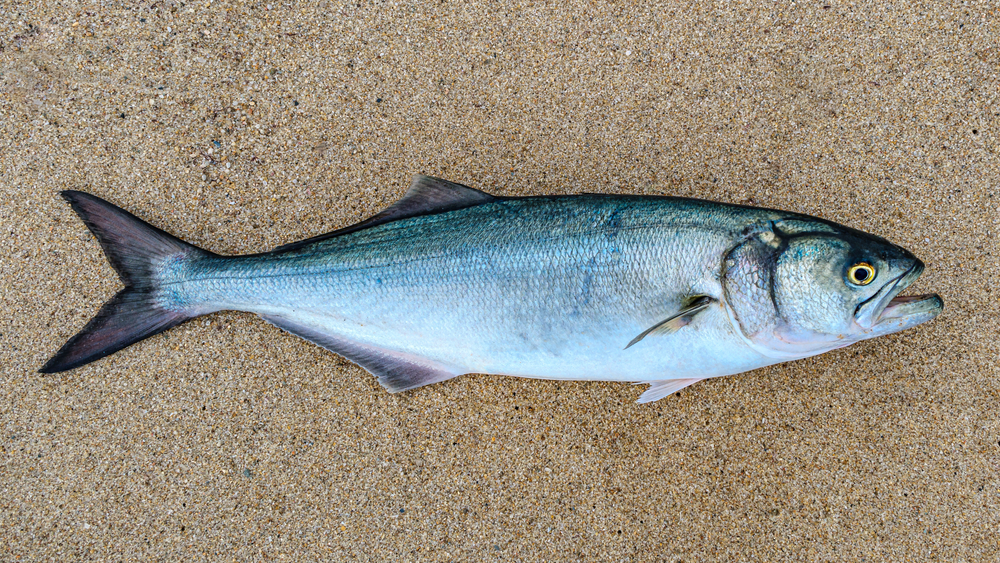Horse Racing: The Undisputed King of Sports
Horse racing: the undisputed king of sports
Throughout history, various sports have claimed the coveted title of” king of sports,” but one stand above all others when this prestigious designation is discussed: horse racing. This ancient sport has earned its royal moniker through a unique combination of history, tradition, athletic prowess, and global appeal that few other competitive activities can match.
Why horse racing is considered the king of sports
Horse racing’s claim to the throne isn’t arbitrary. Several compelling factors have contributed to its coronation as the supreme sporting activity:
Ancient heritage and royal connections
Horse racing boast one of the longest and virtually distinguished histories of any organized sport. Archaeological evidence suggest organize racing date backward to ancient civilizations include the Greeks, Romans, Byzantines, and Egyptians. The sport was oftentimes patronized by royalty and nobility across cultures, cement its association with prestige and power.
Throughout European history, monarchs and aristocrats breed horses specifically for racing, establish prestigious events, and participate as owners. This royal patronage helped establish horse racing’s reputation as an elite pursuit worthy of its regal title.
Economic impact and industry scale
Few sports can match horse racing’s economic footprint. The industry encompass breed operations, training facilities, racetracks, wager systems, and support businesses that conjointly generate billions in revenue and provide employment for hundreds of thousands worldwide.
The thoroughbred breeding industry exclusively represent a sophisticated global enterprise with bloodstock command prices in the millions. Major racing events like the Kentucky Derby, royal mascot, and theDubaii world cup move local economies and attract significant tourism revenue.
Cultural significance and tradition
Horse racing has woven itself into the cultural fabric of nations around the world. Events like the Kentucky Derby in the United States, the grand national in the United Kingdom, the Melbourne cup in Australia, and the Prix de l’Arc de Triomphe in France transcend sport to become cultural institutions and national celebrations.
These races have developed rich traditions, from specific attire and social customs to traditional foods and beverages, that extend far beyond the competition itself. ThKentucky Derbyby’s mint juleps and elaborate hats, royamascotot’s strict dress code, and tMelbournerne cup’s status” ” the race that stop a nati” ” demonstrate how exhaustively race hasembeddedd itself in cultural identity.
Combine multiple forms of excellence
Horse racing unambiguously combine several forms of athletic and competitive excellence:
- Equine athleticism thoroughbreds represent the pinnacle of animal athletic development
- Human skill jockeys must demonstrate extraordinary balance, strength, tactical awareness, and courage
- Training expertise trainers develop sophisticated regimens to prepare horses for peak performance
- Breed science generations of selective breeding create animals optimize for speed and stamina
- Strategic competition racing involve complex tactical decisions about pace, position, and timing
This multifaceted nature set horse race aside from sports that test entirely human athletic ability or strategic thinking.
Historical recognition as the king of sports
The” king of sports ” itle for horse racing have deep historical roots. The phrase become peculiarly prominent during the 18th and 19th centuries when horse racing reach new heights of popularity among both aristocracy and common people.
Origins of the royal designation
The exact origin of horse racing’s coronation as the” king of sports ” s difficult to pinpoint exactly, but several historical factors contribute to this designation:
In England, where modern thoroughbred racing was formalized, the sport wasknownw ” ” the sport of king” due to the passionate involvement of royalty, especially during the reigns of Charles ii, queen Anne, and the Hanoverian monarchs. The natural evolution from” sport of kings ” o “” ng of sports ” ” lect both its royal patronage and its preeminent status among sporting activities.
By the Victorian era, racing had developed sophisticated systems of breeding, training, and competition that make it the virtually technically advanced sport of its time. The establishment of classics like thEpsomom derb(( 178)) and the St. lever stakes (1776 )create prestigious events that alairlevate racing’s status.
Global spread and recognition
As British influence spread globally through colonization and cultural exchange, thence also do horse racing and its royal designation. Countries around the world adopt not exactly the sport but besides the reverence with which it was regard.
In the United States, the sport flourish during the 19th century, with the establishment of the American jockey club in 1894 help to formalize and elevate American racing. The Kentucky Derby, inaugural run in 1875, speedily become America’s premier race event and help cement racing’s status as the king of American sports anterior to the rise of team sports in the 20th century.
IP Australia, the Melbourne cup (kickoff run in 1861 )achieve such cultural significance that it become a public holiday in viVictoriaThe race’s nickname “” e race that stop a nation ” onstrate how exhaustively racing dominate the sporting landscape.
Compete claims to the crown
While horse racing have the strongest historical claim to the” king of sports ” itle, several other sports have make compete claims to this royal designation.
Soccer / football
Oftentimes call” the beautiful game, ” occer is oftentimes dedescribeds the world’s almost popular sport. With an estimate 3.5 billion fans globally and prestigious tournaments like the fFIFA World Cupdraw massive international audiences, soccer surely have a legitimate claim to sport preeminence.
Nonetheless, soccer’s claim to be the” king ” ypically rest on its popularity instead than the historical and cultural factors that underpin horse racing’s royal designation. Soccer is more accurately describe as the almost popular sport instead than the king of sports.
Box
Sometimes call the” sweet science, ” oxing has occasionally been rereferredo as the king of sports, especially during its golden ages in the early and mid 20th century. The one on one nature of combat, the raw display of courage and skill, and the sport’s ancient lineage give box a strong case.
Box shares with horse race a long history and connection to gambling, but lack the broader cultural institutions and economic scale that racing develop.
Cricket
In certain commonwealth nations, specially in South Asia, cricket is sometimes referred to as the king of sports. With matches that can last for days and a complex set of rules and strategies, cricket surely embody sport sophistication.

Source: pinterest.com
Yet, cricket’s claim is regional quite than global, with the sport have limited popularity outside former British colonies.
The modern status of horse racing
While horse racing maintain its historical claim to being the king of sports, its contemporary status varies importantly by region and culture. In some areas, iremainsin a premier sporting attraction, while in others it’s been eclipse by newer forms of entertainment.
Endure prestige of major racing events
The world’s premier horse racing events continue to command enormous prestige, attention, and economic impact:
- The Kentucky Derby regularly attracts crowds exceed 150,000 and a television audience of millions
- Royal Ascot remain a highlight of the British social calendar, with royal attendance maintain the sport’s aristocratic connections
- The Prix de l’Arc de Triomphe in Paris draw the elite of European racing
- The Dubai world cup offer one of sports’ richest purses
- The japan cup has established itself aAsiaia’s premier racing event
These flagship events demonstrate racing’s continued ability to combine sport excellence with cultural significance and social prestige.
Challenges to racing’s royal status
Despite its historical preeminence, horse racing face several challenges to its status as the king of sports:
Competition from newer sports:
The explosion of televise team sports like football, basketball, and soccer has created fierce competition for audience attention and gambling dollars.
Animal welfare concerns:
Increase public sensitivity about animal welfare has raised questions about certain aspects of racing, include the use of the whip, racing relate injuries, and the fate of horses after their racing careers.
Change gambling landscape:
The proliferation of alternative gambling options, from casinos to online sports betting, has eroded racing’s erstwhile dominant position in the gambling market.
Demographic challenges:
Racing has struggle in some markets to attract younger audiences, with critics suggest the sport hasn’t adapted sufficiently to change entertainment preferences.

Source: king of sports.co.uk
Innovations and adaptations
The racing industry has respond to these challenges with various innovations design to maintain the sport’s relevance and appeal:
Enhanced spectator experience:
Many tracks have invested in improve facilities, entertainment options, and hospitality to make race days more appealing to casual fans.
Welfare reforms:
Race authorities have implemented various reforms address welfare concerns, include improve track surfaces, modify whip rules, and enhance retirement programs for ex racehorses.
Digital engagement:
The industry has expanded its digital presence through improved broadcasting, social media engagement, and online bet platforms.
International coordination:
Global racing has become more integrate, with international competition series and greater cooperation between race jurisdictions.
The enduring legacy of the king of sports
Whether or not horse racing nonetheless reign supreme in the modern sporting landscape, its legacy as the king of sports remains secure. The sport’s contributions to culture, language, and eve other sporting traditions ensure its place in the pantheon of human competitive endeavors.
Cultural influence
Race terminology has enriched everyday language with phrases li” ” down to the wire” front-runner,” dark horse, ” nd “” me stretch. ” theTheort has insinspireduntless works of art, literature, and film, from edEdgar Degaspaintings of racehorses to films like “” abiscot ” ” ” s” etariat. ”
Racing’s influence extend to fashion, with race day attire influence broader fashion trends, and to culinary traditions associate with major racing events.
Technological and scientific legacy
The pursuit of equine excellence in racing has drive advances in veterinary medicine, nutrition science, and training methodologies that benefit horses beyond the racetrack. Racing’s long history of timing performances and analyze results pioneer sports statistics and performance analysis that nowadays pervade all competitive activities.
Sporting influence
Many aspects of modern sport administration, from drug testing protocols to handicapping systems, were kickoff develop or refine in horse racing. The sport’s broadcasting innovations, from the photo finish camera to specialized commentary techniques, have influence how all sports are present to audiences.
Conclusion: a throne nevertheless occupy
While the sporting world has evolved dramatically since horse racing world-class claim its crown as the king of sports, the fundamental qualities that earn it this designation remain. No other sportcombinese such a rich history, cultural significance, economic impact, and multifaceted excellence.
The title” king of sports ” sn’t but about popularity or revenue but about a sport’s place in human culture and history. By this measure, horse racing’s claim to the throne remain strong. Yet as newer sports capture more headlines and viewers, they build upon foundations that racing help establish.
For those who appreciate sport not exactly as entertainment but as a cultural institution that connect us to history while showcase the heights of human and animal achievement, horse racing continue to reign as the true king of sports a monarch whose influence extends far beyond the racetrack.



